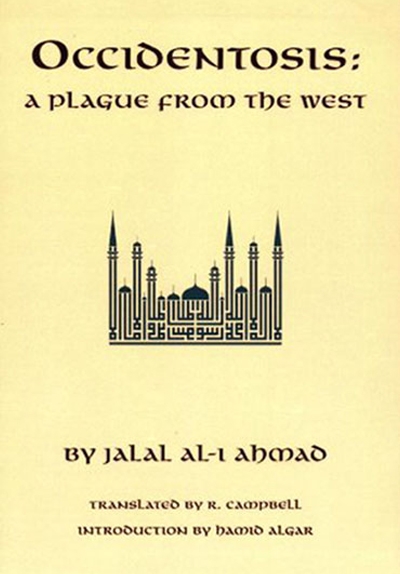



The Uthmaniyyah sultanate, which claimed the legitimacy of khilafah, was as corrupt and rotten as any monarchy in Muslim history. This was a massive contributory factor in its decline and ultimate collapse.
The golden age of Islamic civilization, the thousand years from about 700 to 1700 CE during which Muslims ruled from the Atlantic to the Pacific, and were the driving and leading force in human history, laying the foundations of much of what is now considered ‘modern’, have been carefully airbrushed out of modern western history books.
The unfettered speculative reasoning of modernism has led to great social and cultural dislocations in the west. It is, however, pertinent to ask what does the modernist dogma rest on. Upon inquiry, we find the following triad...
In this paper, Zafar Bangash highlights some key elements of Dr Kalim’s Siddiqui’s understanding of the contemporary historical situation, the role of the Islamic movement as in instrument for the ‘total transformation’ of the Ummah, and the challenges facing the Islamic movement in attempting to fulfill this role.
Conference Papers to be updated.
WHO can survive and who cannot is a question that has always occupied the minds of theologians, historians, philosophers and scientists. Elaborate theories have been developed around this theme. The more famous are those of Plato, Abdur-Rahman, Ibn Khaldun, Karl Marx, and Charles Darwin.
Occidentosis is the best known and most influential work of the Iranian intellectual and writer, Jalal Al-i Ahmad. In a sense, it is the record of a personal journey to a new understanding of Iranian society and history, but since it aroused a widespread and enthusiastic response (to the degree that the coined word of its title permanently entered the Persian language), it may also be regarded as a document of the ideological ferment that ultimately led to revolution.To summarize, Gharbzadagi cannot be presented as a decisive and pioneering work of revolutionary thought, fully in tune with the historical forces that were to bring about revolution. Nonetheless, it has a solid if modest claim to lasting attention, as the record of an eloquent diagnosis of the major ill of Iranian society by one whose life was devoted to constant, sincere, and solicitous reflection on the state of his countrymen and who contributed to a partial reorientation of the Iranian intelligentsia.
1[Paper presented at the Muslim Institute's World Seminar on ‘State and Politics in Islam’ in London in August 1983. It was also published as the introduction to Kalim Siddiqui (ed), Issues in the Islamic Movement 1982-83, London and Toronto: The Open Press, 1984, and reprinted in Zafar Bangash (ed), In Pursuit of the Power of Islam: Major Writings of Kalim Siddiqui, London and Toronto: The Open Press, 1996.]
[This paper was written as the introduction to Issues in the Islamic Movement 1980-81, London and Toronto: The Open Press, 1982. This was the first volume of the ‘Issues books’, the anthologies of articles from the Crescent International and Muslimedia which were edited by Kalim Siddiqui and published annually from 1982-1988. It was reprinted in Zafar Bangash (ed), In Pursuit of the Power of Islam: Major Writings of Kalim Siddiqui, London and Toronto: The Open Press, 1996. This printing is based on the 1996 publication.]
[Paper presented at a seminar of the same name organized by the Muslim Institute in London on March 1, 1980, to mark the first anniversary of the Islamic Revolution in Iran. Two other papers were also presented at this seminar, by Dr Ali Afrouz and Dr Abdur Rahim Ali. Dr Siddiqui refers to these presentations in this paper. The papers presented at this seminar, and one by Iqbal Asaria presented at an internal seminar of the Muslim Institute, were later published as Kalim Siddiqui et al, The Islamic Revolution: Achievements, Obstacles and Goals, London: The Open Press, 1980. This paper was reprinted in Zafar Bangash (ed), In Pursuit of the Power of Islam: Major Writings of Kalim Siddiqui (London and Toronto: The Open Press, 1996). This version is based on the 1996 printing.]
[Kalim Siddiqui, The state of the Muslim world today, London: The Open Press, 1980. This is the text of a lecture given at the University of Manchester Islamic Society on December 8, 1979. It was reprinted in Zafar Bangash (ed), In Pursuit of the Power of Islam: Major Writings of Kalim Siddiqui (London and Toronto: The Open Press, 1996). This edition is based on the 1996 printing.]
We must, however, guard against the misuse of religion to hamper the innovative spirit of man or to allow its advocates to brandish it as a weapon stifle any new idea or to cripple scientific enquiry. It is enough for the society to be deeply religious and for the scientist to be so inspired to ensure that he would not step out of line or to misuse science as to impinge on the province of religion.

